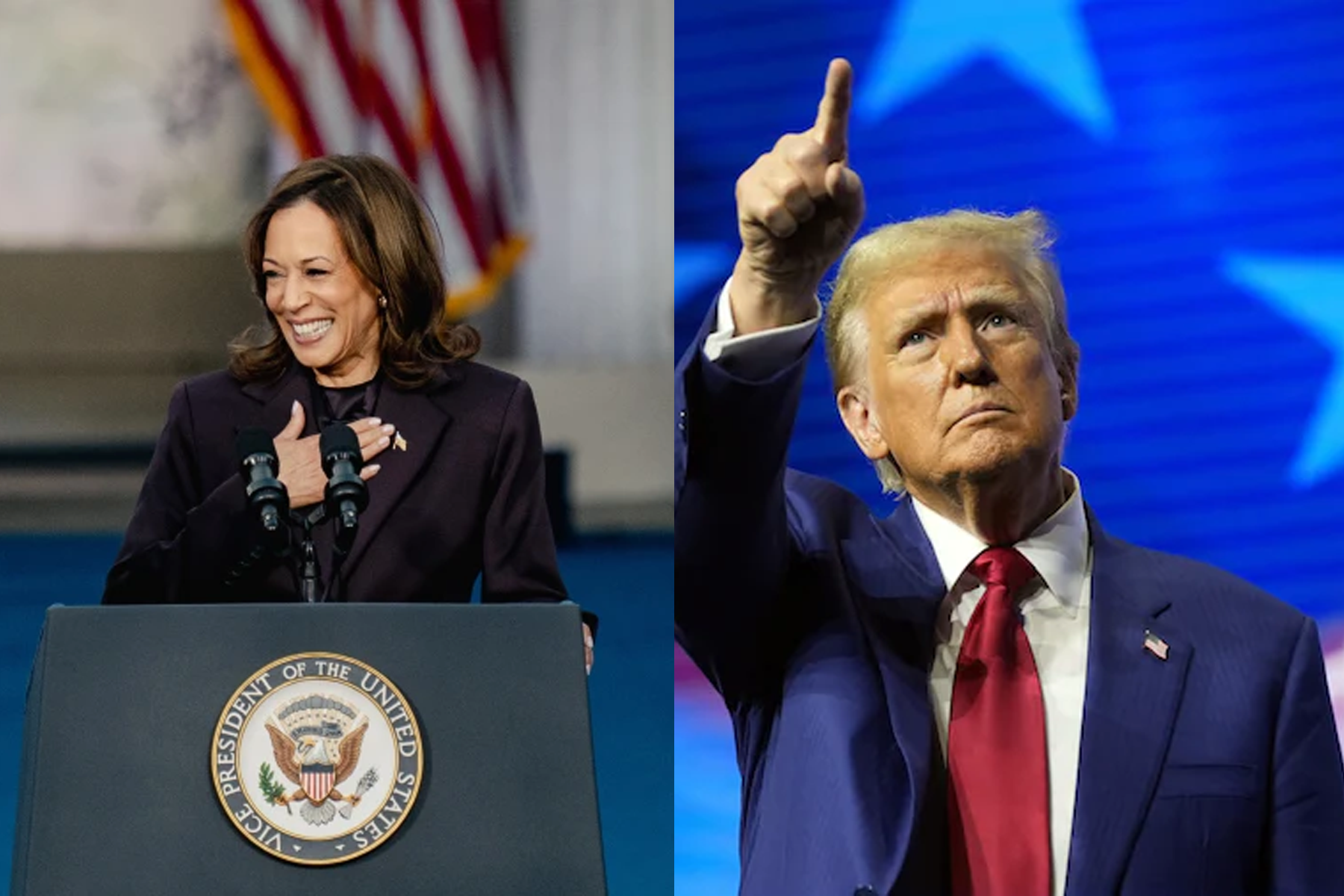After a close electoral race, Donald Trump was elected to be the next president of the United States on Tuesday.
Trump secured 50.4 per cent of total votes and 312 electoral votes, surpassing Democratic candidate Kamala Harris by 86 electoral votes, with Harris receiving 48 per cent of voter support.
Throughout their presidential campaigns, neither candidate showed a significant lead among overall voting estimates. After Harris was able to strengthen her position as the Democratic leader, replacing President Joe Biden as the nominee, The New York Times and Siena College polls consistently found that the candidates had almost equal support among potential voters.
The tight race between the candidates was evident in the swing state polling leading up to the election. The Times/Siena polls found that the candidates were supported in mere percentage points of each other in the critical battleground states, including Nevada, North Carolina, Wisconsin, Georgia, Pennsylvania, Michigan and Arizona.
Trump saw victory in all of the battleground states by very close margins, flipping several states that the Republicans had lost in the 2020 election, including Georgia, Michigan, Wisconsin, Nevada and Pennsylvania.
Economics, immigration and abortion were the most polarizing issues between the Republican and Democratic Parties, with the parties’ different approaches on the matters garnering great attention.
Trump made a plethora of promises during his electoral campaign regarding policies he would enact if elected president. Most notably, Trump made several promises surrounding taxes, including widespread, wage-dependent tax cuts to increase workers’ take-home pay and the elimination of federal taxes on tips — both efforts which he shared with Harris in her proposed tax plans — as well as getting rid of income taxes on Social Security benefits.
The tax cuts are a part of the “Trumponomics” plan, which is supposed to bring down the inflation levels that Trump says are a result of Biden’s presidential decisions. The plan also includes placing tariffs on all imported products.
Trump’s economic plan leads into his plans for immigration, as he plans to conduct mass deportation efforts in response to both the economy and immigration. Trump told NBC News that he denies the assumption that he wants to keep people out of America, but also said he wanted to make America’s border “strong and powerful.”
The president-elect said that he plans to instate tougher immigration policies, barring migrants from staying in America while their asylum cases are under review and restricting access to immigrants based on their personal ideologies. At the Faith and Freedom Coalition’s conference, Trump said he will not allow “communists, Marxists and socialists” to migrate to America.
Many economists have posed questions to Trump’s inflation plan, warning that the tariffs will likely increase the price of goods. Moreover, higher deportation rates rooting from immigration restrictions may lead to a smaller work force and higher wages for workers, driving up costs and working against Trump’s promises.
Trump also seeks to increase the child tax credit from $2,000 to $5,000, which was a promise brought forth by his running mate J.D. Vance, who has emphasized his focus on giving Americans the chance to “raise a family in comfort and stability.”
Abortion has also been a significant issue in the Republican Party, as three of the supreme court justices appointed by Trump were integral in the decision to overturn Roe v. Wade — the 1973 Supreme Court decision that ruled abortion as a constitutional right.
Despite the Republican Party’s inextricable link to restricting abortion access, Trump has attempted to distance himself from their pro-life rhetoric, denying assumptions that he would sign an abortion ban and saying that the decision should be decided through local elections, making the restrictions state specific.
Harris responded to her defeat by saying she accepts the results and will peacefully transfer power over to the Republican Party. Harris said that voters should not “owe loyalty” to either presidential candidate nor their parties, but to “the Constitution of the United States… to our conscience and to our God.”
Until Trump is sworn into office at the presidential inauguration on Jan. 20., Biden and Harris plan to continue their work towards a peaceful transfer of power.

